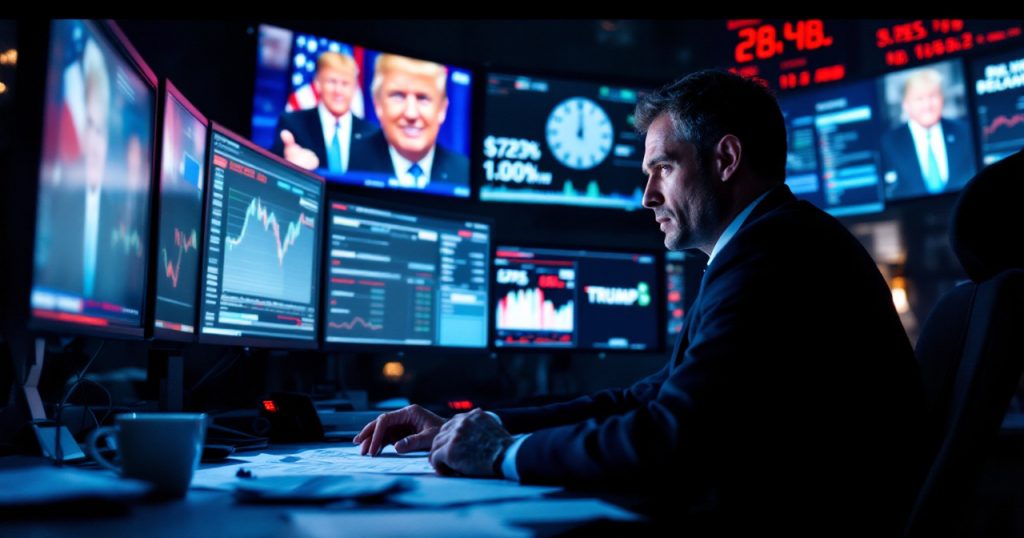The phenomenon of online political betting, particularly through the Polymarket platform, is gaining increasing popularity as the American presidential election on November 5, 2024 approaches. While traditional polls place Kamala Harris slightly ahead of Donald Trump, bettors on Polymarket estimate that the latter has nearly a 67% chance of winning the election. More than $2.7 billion has been wagered on this election on the platform.
The Rise of Political Betting
Polymarket allows users to buy and sell shares representing future outcomes in a variety of events, including elections. This model could revolutionize our relationship with election predictions, with some claiming it would provide more accurate indications than traditional polls. A French trader reportedly bet around $28 million solely on Trump’s victory through several anonymized accounts.
Discrepancies with Traditional Polls
Data collected on Polymarket suggests a different dynamic compared to surveys conducted by FiveThirtyEight, which show Harris at 48% against Trump at only 46%. This disparity raises questions about the overall reliability of both predictive platforms and conventional polling methods. Although Polymarket attracts an international audience—particularly by circumventing certain American restrictions—its statistics also reveal the disproportionate power granted to a few large bettors.
Legal Issues and Regulation
The rapid rise of the predictive market also raises concerns and controversies regarding its legality in the United States: the Commodity Futures Trading Commission (CFTC) is hostile to the lack of legal framework surrounding election betting. Despite this, no evidence has been found against the French trader cited in various media for market manipulation; it appears he acted based on his personal analysis rather than as a malicious actor.
Future Implications
As the election looms on the horizon, the growing interest in these platforms could transform not only our perceptions but also our practices in political and financial analysis. As we approach the big day, it will be crucial for observers as well as economic actors to adjust their expectations regarding both the predictive market and the traditionally opinion-based one.
To deepen your understanding:
This topic represents a fascinating intersection between modern finance and the democratic process as the world closely watches how these dynamics will evolve in the context of the upcoming American presidential election.

